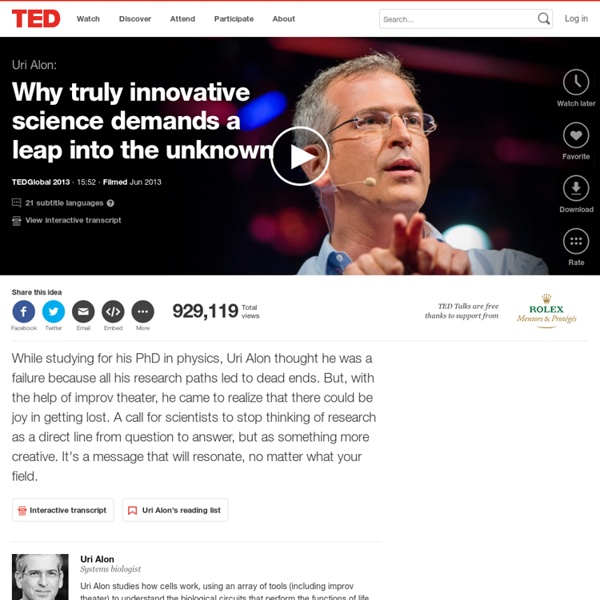



Refining Your Topic Return to Main PageReturn to Starting to Write Information Power/Refining Your Topic* The refining or narrowing process begins as soon as you select a topic. It will continue until the last draft is written. STEP ONE) Make sure it is something worth doing. STEP TWO) Write something down. STEP THREE) Focus, focus, focus. a) WHO: people or interest groups involved - teenagers - Dominicans b) WHAT: a particular component of the subject - prevention - diagnosis or treatment c) WHEN: a specific time period - within the past 5 years - during the turn of the previous century d) WHERE: a geographic area or location - rural New York State - college campuses e) WHY: its relation to other things - criminal or legal aspects - medical aspects STEP FOUR) Think of questions that you would want your research to address. STEP FIVE ) Consider the whole project. STEP SIX) Stay true to your focus as you continue to refine your topic. *John Henderson, Ithaca College L
The Most Effective Factor in Education Recognising research problems Research Skills required by PhD students A1: The ability to recognise and validate problems Check this skill By the time students complete a PhD, they should be able to answer ‘Yes’ to most of these questions. Can you identify the research questions addressed in the research papers that you read? Evidence of this skill These are examples of documents you can collect. The research question component of your probation assessmentNotes from a discussion on gaps in the literatureWritten analysis of problems addressed in the literature (for example, in a selection of studies) with a description of how the problems were addressed, and a discussion of the benefits and limitations of those approaches. This page is based upon material produced by The Open University’s research school to support doctoral students. Settling on a research question isn't as easy as it sounds. question
Social Theories: Public Health. Boston University Public health is a multi-disciplinary field that aims to 1) prevent disease and death, 2) promote a better quality of life, and 3) create environmental conditions in which people can be healthy by intervening at the institutional, community, and societal level. Whether public health practitioners can achieve this mission depends upon their ability to accurately identify and define public health problems, assess the fundamental causes of these problems, determine populations most at-risk, develop and implement theory- and evidence-based interventions, and evaluate and refine those interventions to ensure that they are achieving their desired outcomes without unwanted negative consequences. To be effective in these endeavors, public health practitioners must know how to apply the basic principles, theories, research findings, and methods of the social and behavioral sciences to inform their efforts. This module will provide an overview of some of the theories you will learn in SB721.
MASON Multiagent Simulation Toolkit [paper] Keith Sullivan and Sean Luke. 2012. Real-Time Training of Team Soccer Behaviors. In Proceedings of the 2012 RoboCup Workshop. [paper] Keith Sullivan, Katherine Russell, Kevin Andrea, Barak Stout, and Sean Luke. 2012. RoboPatriots: George Mason University 2012 RoboCup Team. In Proceedings of the 2012 RoboCup Workshop. [paper] Keith Sullivan and Sean Luke. 2012. [paper] Keith Sullivan, Christopher Vo, and Sean Luke. 2011. [paper] Keith Sullivan and Sean Luke. 2011. [paper] Keith Sullivan, Sean Luke, and Vittorio Ziparo. 2010. [paper] Sean Luke and Vittorio Ziparo. 2010. [paper] Brian Hrolenok, Sean Luke, Keith Sullivan, and Christopher Vo. 2010. [paper] Keith Sullivan, Sean Luke, and Brian Hrolenok. 2010. [paper] Atesmachew Hailegiorgis, William Kennedy, Mark Roleau, Jeffrey Bassett, Mark Coletti, Gabriel Balan, and Tim Gulden. 2010. [paper] William Kennedy, Atesmachew Hailegiorgis, Mark Rouleau, Jeffrey Bassett, Mark Colletti, Gabriel Balan, and Tim Gulden. 2010.
How to choose a thesis topic | The Three Month Thesis One of the most common questions I get asked is how to choose a thesis topic. It can be a frustrating problem finalising your research ideas. You have to commit to something, but how do you know you’re setting out on the right track? In this post, first I’ll explain what makes a good research topic, then how to choose a thesis topic and how to do the right things early to avoid problems later. Thinking about the end result, your examiners will be looking for research which is; novel (original)set in the context of the existing research in the field, andcompetently executed When choosing a thesis topic, it makes sense to use these criteria to help you. Novelty It’s incredibly hard to come up with a completely new idea. There are three approaches to novelty. The second approach is to pick a specific subject you want to study, and identify a question or problem that hasn’t been addressed before in that niche. The third is to apply a new methodology. Context This is because Competence 1. 2. 3.
Theory in Human Resource Development NetLogo Home Page NetLogo is a multi-agent programmable modeling environment. It is used by many hundreds of thousands of students, teachers, and researchers worldwide. It also powers HubNet participatory simulations. It is authored by Uri Wilensky and developed at the CCL. You can download it free of charge. What can you do with NetLogo? Join mailing lists here. Download NetLogo Go to NetLogo Web NetLogo comes with a large library of sample models.